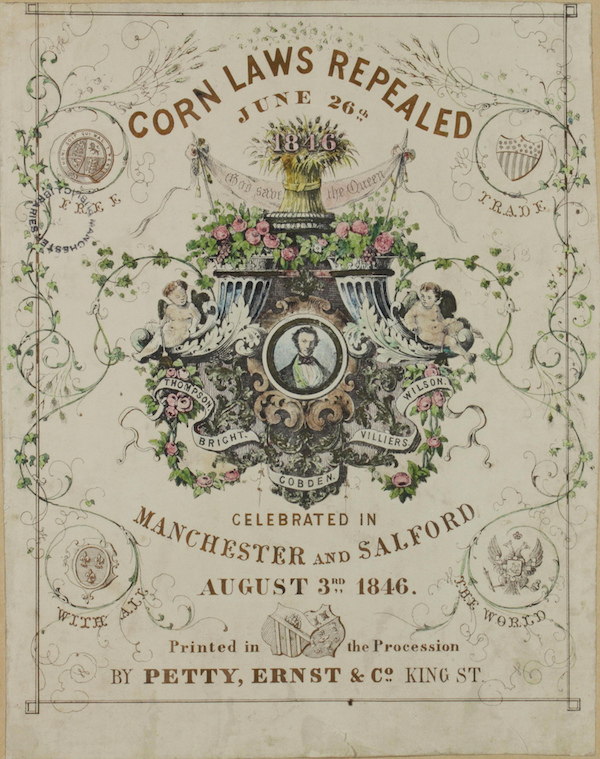
Richard Cobden: Parliamentary Corn Law debates [1845]
“I warn ministers, and I warn landlords and the aristocracy of this country, against forcing on the attention of the middle and industrial classes, the subject of taxation ….. If you were to bring forward the history of taxation in this country for the last 150 years, you will find as black a record against the landowners as even in the Corn Law itself.
I warn them against ripping up the subject of taxation. If they want another league at the death of this one – if they want another organisation and a motive – then let them force the middle and industrial classes to understand how they have been cheated, robbed and bamboozled …..
For a period of 150 years after the conquest, the whole of the revenue of the country was derived from the land. During the next 150 years it yielded nineteen-twentieths of the revenue. For the next century down to the reign of Richard III it was nine-tenths. During the next 70 years to the time of Mary it fell to about three-fourths. From this time to the end of the Commonwealth, land appeared to have yielded one-half the revenue. Down to the reign of Anne it was one-fourth. In the reign of George III it was one-sixth. For the first thirty years of his reign the land yielded one-seventh of the revenue. From 1793 to 1816 (during the period of the land tax), land contributed one ninth. From which time to the present one twenty-fifth only of the revenue of the revenue had been derived directly from land.
Thus, the land, which anciently paid the whole of taxation, paid now only a fraction, or one twenty-fifth, notwithstanding the immense increase that had taken place in the value of the rentals. The people had fared better under despotic monarchs than when the powers of the state had fallen into the hands of a landed oligarchy who had first exempted themselves from taxation, and next claimed compensation for themselves by a corn law for their heavy and peculiar burdens.”


